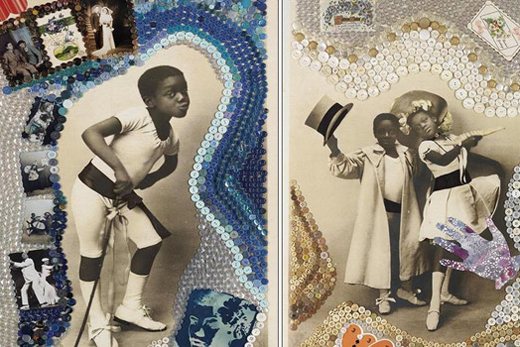Creativity is complex, and the true artist often navigates through ideas and inspiration to explore new mediums and techniques. Amalia Amaki 92G 94PhD is one such artist whose evocative and visually stunning work has earned global acclaim. Amaki is passionate about our shared roots in community and friendship, and her newest book, Homage, pays tribute to a multi-faceted life.
Four years in the making, "Homage has been a healing balm for me," she reveals. This deeply personal work will be released as a limited edition signed and numbered artist's book. Fifty-six poems and artworks presented in the upcoming book were shown in a special exhibition at Palm Beach State College (West Palm Beach) in January-February this year. Homage showcases poems that are conversations with people who have passed but that, at critical points "saved" Amaki's life. "These are poems and images of gratitude and affection," she explains.
Amaki's process of creation, both in art and in poetry, is revelatory. "I grew up in a very creative environment," she writes in Boxes, Buttons, and the Blues, her stunning book that shares images of her magical candy box creations and portraiture. Her first foray into still life came at 13. "I remember one day fooling around with yarn and burlap. I took one of my father's burlap bags and cut it up, and then I took some of my mother's yarn, and I created a still life." She soon created a second one, and the art pieces "were transformed when the decorator at Rich's [Department Store] framed them." She recalls how seeing her work framed with a furniture display gave her newfound perspective. "The framing gave me the message that this wasn't just some crafty thing I had done with yarn. It was art." A customer loved the display so much he bought the furniture and the art. "That was my first really big sell. When you are supported early and rewarded with money for your efforts, you are given an incentive to continue working."

